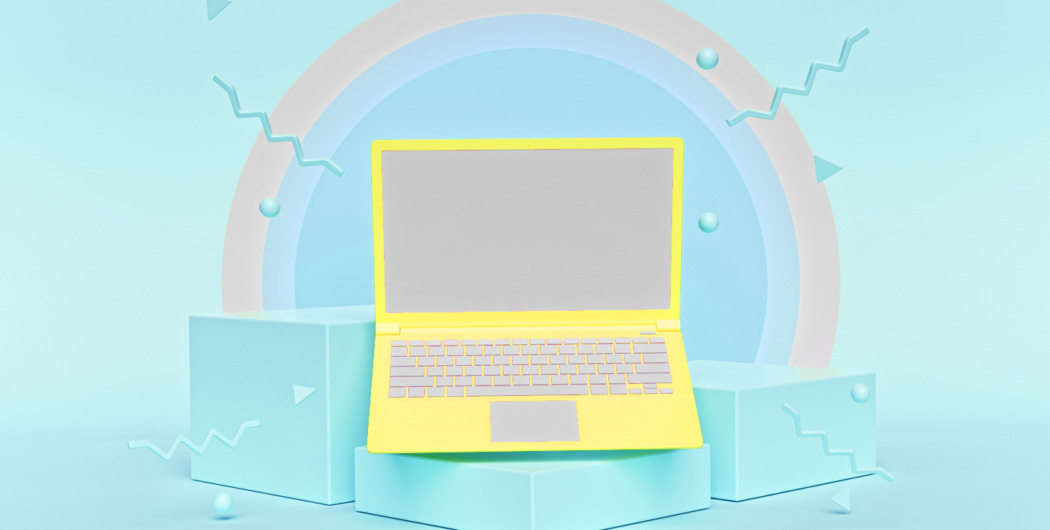

There are laptops for everyone—from budget-friendly models to outlandishly expensive ones. If you’re shopping around for a new laptop, perhaps you’d like to save as much as possible and buy the world’s cheapest portable computer, Thomson X5 Neo 10. While it costs only $120, its hardware is barely capable of meeting Windows 10 requirements.
But on a more serious note, if you’re looking for the best laptop for day trading, this article is for you. Check out the criteria to choose a laptop and the five most popular models.
What components to pay attention to
When choosing a desktop or laptop for day trading or any other important purpose, there are several key components to consider:
- Display quality: You’ll be looking at your monitor for a good portion of the day, so it must have a sharp, clear picture with an anti-glare effect to protect your eyes.
- Keyboard quality: Look for a comfortable layout with full-sized, backlit keys and some space around the arrow keys.
- CPU: It should be powerful enough to support your chosen software without overheating.
- RAM: The more RAM, the better.
- Storage: Go for a solid-state drive (SSD), which runs at a higher speed and more quietly than a hard drive.
- Battery life: The larger the Watt-hours (Wh) or milliamp-hours (mAh) figures are, the better the battery.
- Wireless connectivity: LTE technology is preferred.
Minimum specifications for beginners
If you already have a laptop, it’ll be enough to start trading. Learning the skill and trading small positions doesn’t justify the purchase of a high-end laptop.
However, for those who don’t have a laptop, opt for models with a good graphics card, mid-tier resolution monitor, and a decent amount of RAM. Here are the preferred specifications:
- 8 Gb RAM
- 2 Gb GPU, especially if you plan to add another monitor to your set-up in the future
- Quad-core 2.8 GHz 64-bit processor
- 250 Gb HDD
- 24-inch 1080p resolution
Minimum specifications for intermediate and advanced traders
Obviously, trading at scale requires more from your laptop. This means you need a responsive laptop with high-grade hardware. It also must be comfortable to use even after many trading hours.
The requirements for you are:
- 16+ Gb RAM
- 4 Gb GPU
- Quad-core 2.8 GHz 64-bit processor
- 250 Gb SDD
- 24-inch 1080p resolution
Those who have made trading their full-time day job should consider a desktop set-up. You can still use your laptop, but you’ll enjoy having the choice between portability (laptop) and better performance (desktop).

5 laptops for day traders
Now is probably the most exciting part—looking at the top-rated, most popular laptops! There will also be a short description and a list of pros and cons for each model.
1. Acer Aspire E 15
Retail price: ~$500
Acer’s Aspire E 15 is a rather chunky laptop that offers more than its retail price suggests. The average user or beginner trader is this laptop’s target market.
Pros:
- Powerful CPU
- Great battery life
- Snappy SSD system
- Comes with a wide range of ports
Cons:
- Bulky and heavy design
- Dim display
- Limited internal storage
2. Apple MacBook Pro
Retail price: ~$1,300
Apple maintains its reputation as offering the best video and audio experience while also offering high performance overall. The laptop is intuitive to use, smooth, and lightning-quick. Although, desktop-class performance comes at a higher price point.
Pros:
- Meets the highest CPU benchmarks
- Excellent battery life
- Ultra-high-resolution display
- Sleek design
Cons:
- Zero upgradeability
- Glossy display
- Integrated graphics “borrow” system RAM
3. Razer Blade Stealth 13
Retail price: ~$1,000
Blade Stealth 13 has major design revisions from the previous models while also carrying internal upgrades. While it’s primarily designed as a premium ultraportable for video gaming, it will serve as a trading laptop just as well.
Pros:
- Compact
- Premium build quality
- Very low fan noise
- High resolution and touch capability
Cons:
- Less than 8 hours of battery life
- Sharp edges throughout
- Mediocre speakers
4. ASUS VivoBook
Retail price: starting at ~$420
ASUS’s VivoBook is quicker than most similarly priced competitors and features above-average internal capabilities. Although, the biggest concession is a subpar battery. This can be considered the best budget laptop for day trading since the starting set-up is below $500 and still meets the minimum specs listed above.
Pros:
- Quiet operation under most loads
- Good selection of ports
- Good viewing angles
- Excellent keyboard
Cons:
- Slow SSD
- Relatively small battery capacity
- Poor audio output
5. ASUS ZenBook
Retail price: ~$1,200
ZenBook is an ultra-thin, ultra-light laptop with the latest AMD Ryzen processor. Thanks to its Radeon graphics, it’s also one of the brightest-looking laptops on the market.
Pros:
- Well-engineered
- Fantastic battery backup
- Impressive spec sheet
- Boosted picture quality, capable of producing perfect black
Cons:
- Quite delicate
- Poor typing experience
- Uncomfortable touchpad
Summary
There is no single best trading laptop because no two traders want the same things. But there are selections with the highest-rated models and a list of criteria to help you find the optimal laptop for your needs. If the laptops listed above don’t meet your needs and preferences, be sure to refer back to the selection criteria to find “the one.” Keep minimum requirements in mind, too.








